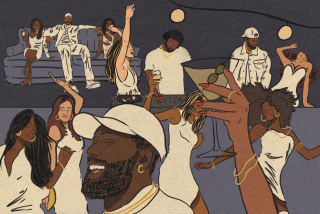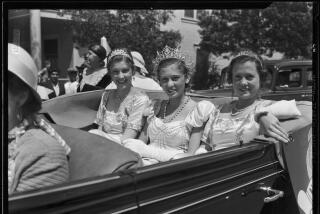NOW, Paula Jones and Miss Anne
- Share via
So two days after saying that it might support Paula Corbin Jones in the appeal of her sexual harassment case against President Clinton, the National Organization for Women has changed its mind.
Is anybody suffering from political whiplash here? And would NOW’s abrupt slamming of the brakes be because Jones is not NOW’s sort of woman?
Whenever NOW has been in the news for a sustained period of time, I can count on hearing a comment like one of the following from my friends who are black women:
“There they go again; they still don’t get it.” Or: “They should call it the National Organization for White Women, or the National Organization for Wealthy Women because Miss Anne doesn’t live in the real world.”
“Miss Anne” is code in the black community; she was the lady who ran the plantation and often meted out the discipline. She might have lived in a different kind of bondage, given that wives then were often economically dependent upon their husbands, but she still reigned over the black women she supervised (or owned). So the specter of Miss Anne has floated down through history, and she pops up at times when black and white women have divided opinions. (It is safe to say that she was earning overtime during the O.J. Simpson controversy.)
A lot of black women who walk the feminist walk and talk the feminist talk refuse to be called “feminist” because the word (like the acronym NOW) carries a lot of Miss Anne baggage. Too, the issues of chronic poverty and overall racism, which directly affect black women’s place in American society, seem to take a back seat to more hypothetical, mediagenic issues such as sexual harassment.
“I’m always reluctant to use the word,” says USC professor Donna L. Franklin, author of “Ensuring Inequality: The Structural Transformation of the African American Family”. “I know the connotation it has in our community. It’s negative.” Franklin, whose academic work centers on women and children in poverty, says she prefers to use the word Alice Walker is credited with coining, “womanist,” because it encompasses both the notion of female equality and the real-life issues she considers important.
She’s not alone in her aversion. In the early 1970s, Louis Harris and Virginia Slims conducted a poll to gauge the sympathies of black and white women to the then-budding feminist movement. Interestingly, when asked whether they supported “efforts to strengthen or change women’s status in society,” 62% of black respondents said yes; only 45% of their white sisters did. And when asked if they expressed sympathy with what the poll labeled “women’s liberation,” 67% of black women responded in the affirmative, while 35% of white women did. Yet still these African American women demurred at being called what they so clearly were: feminists.
NOW’s current waffling in the Paula Jones controversy is, for many black women, superfluous. The organization’s initial reluctance to support Jones is seen as better-off women shying away from someone outside their socioeconomic circle. In a lot of black women’s minds, either you’re for women, even if they don’t have Ivy League degrees, Democratic leanings and aren’t dressed by Ralph Lauren, or you’re for certain women. And if that’s the case, just say so.
More to Read
Sign up for Essential California
The most important California stories and recommendations in your inbox every morning.
You may occasionally receive promotional content from the Los Angeles Times.










